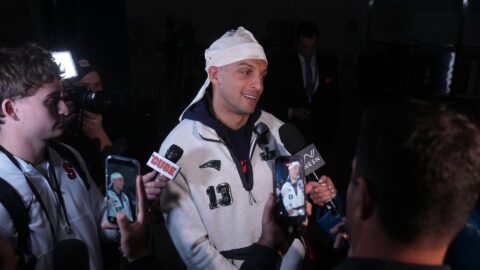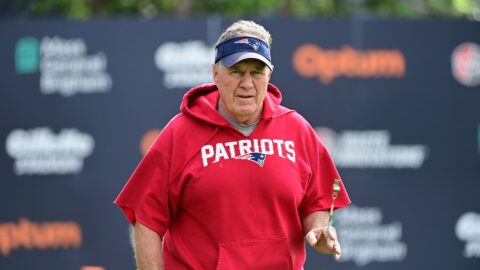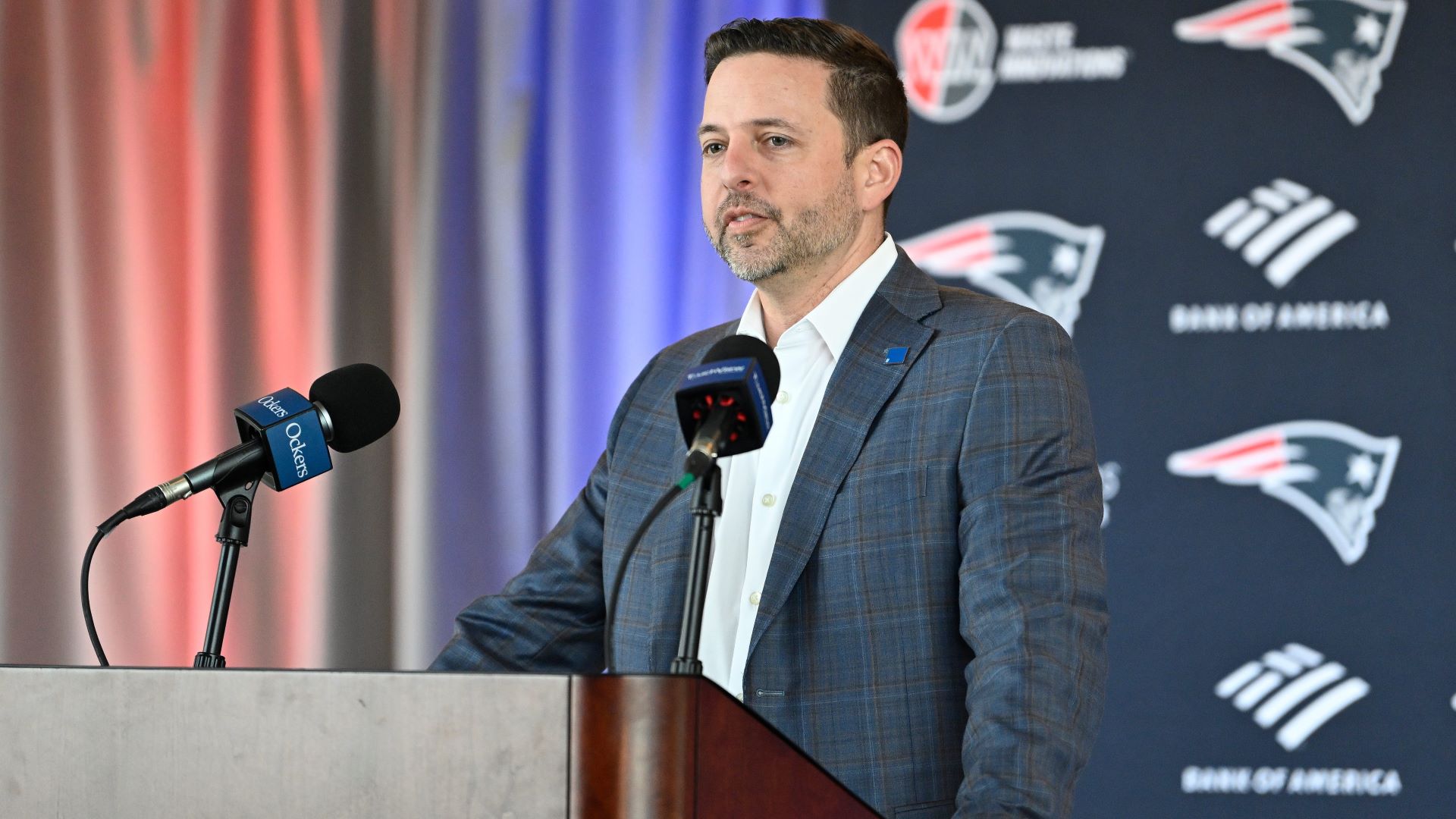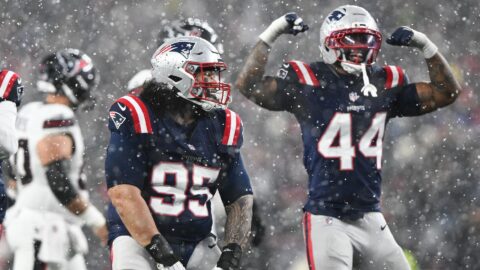The Bruins enter Friday's opening of the free agency period in an envious position.
Coming off the club's first Stanley Cup in 39 years, they've got almost their entire roster under contract for next year. And to fill the few holes they do have, the Bruins have plenty of salary cap space.
But don't expect the Bruins to make a huge splash in the free agent pool. The waters are shallower this year than usual, and the Bruins have to be concerned with staying afloat beyond the upcoming season. The only current Bruins up for new contracts this summer are forwards Mark Recchi, who has announced his retirement, Brad Marchand, a restricted free agent the Bruins have already tendered a qualifying offer, and Michael Ryder, along with defensemen Tomas Kaberle and Shane Hnidy.
But next summer, top-line center David Krejci, goalie Tuukka Rask and defenseman Adam McQuaid will all be restricted free agents and forwards Chris Kelly, Rich Peverley, Daniel Paille, Gregory Campbell and Shawn Thornton and defenseman Johnny Boychuk are scheduled to become unrestricted free agents. The following year, the Bruins will need to find cap space for new deals for Milan Lucic, Nathan Horton and Tyler Seguin, with Andrew Ference and Tim Thomas also headed to free agency in 2013.
So while Bruins general manager Peter Chiarelli has some money to play with this summer with just over $52 million committed to 18 players and the salary cap rising to $64.3 million, he won't want to use up too much of that remaining cap space if it involves signing long-term deals that could handcuff him in the coming years.
That might be just as well, as Chiarelli also noted in a conference call with reporters on Thursday that there isn't really a lot of enticing options in this year's free-agent pool to tempt him anyway.
"It certainly impacts us," Chiarelli said of the crop of impending free agents on his club next year. "I'm a little wary of the market, first and foremost. The cap is high and the cap is certainly going to come down in some shape or form. So one, generally speaking, I'm wary of the market, where I think it might be going.
"Two, and a close two, is that we do have guys we want to re-sign," Chiarelli added. "And they're going to command raises. So I'm really not in a position to go out and give a guy a big-term contract. I think we can find that help elsewhere, other than those big term contracts and still be in a good position to re-sign our guys as they come up in the next year or two."
While the cap has risen every year since it was implemented coming out of the owners' lockout that cost the league the 2004-05 season, Chiarelli isn't certain that trend will continue, making him even more cautious about committing big money to free agents this summer with just one more year remaining on the current CBA.
"I didn't say that [the cap would definitely go down], I just think that the economy will dictate that," Chiarelli said. "At the end of the day, you know the parties will decide where the CBA is. But I can't see it being where it's at now. I see the league economics and I just can't see it being where it is now."
That makes it just as well that there aren't a lot of appealing players going up for bid on Friday. Brad Richards headlines a crop of free agents that features plenty of useful parts, but not a lot of true difference makers.
"I look at my board and I see the number of players and the quality of players," Chiarelli said. "And the numbers may be the same, the quality is you know, there's just not the high-end players."
That doesn't mean someone won't spend, and likely overspend, on the players that are available. With the raising of the cap ceiling for this season also comes an increase in the cap floor to $48.3 million, so even struggling smaller market teams will have to throw some money around to reach the minimum payroll. That means some lower-tiered free agents could be cashing in big time in the next few days.
"You've got the floor of the cap and teams have to spend," Chiarelli said. "So you're going to get contracts I think that, they're generally higher in the unrestricted market, but I even think they'll be that added premium because teams have to spend. Then all the other comps follow in line. And that's why I'm a little cautious going into this market. There's not the supply that there normally is and I think the demand is greater because of the cap floor and teams have to spend."
The lack of options on the open market isn't a reflection of a dwindling talent pool in the NHL. Instead, it's largely the result of teams recognizing the need to lock up their own core players before they can ever reach free agency, as the Bruins did before the start of last season by signing captain Zdeno Chara and center Patrice Bergeron to extensions before they began the final year of their existing contracts.
"I think that that's a large part of it, and we've locked up guys too," Chiarelli said. "And I'm not saying that's the wrong thing to do, but I see generally older players available and I see very few impact or significant players. And so you have to resist sometimes, at least I feel the need to resist, going out and giving these guys, they've earned the right to get what they get, but I feel the need to resist to give them the extra term or the extra dollar and that's what ends up happening."



